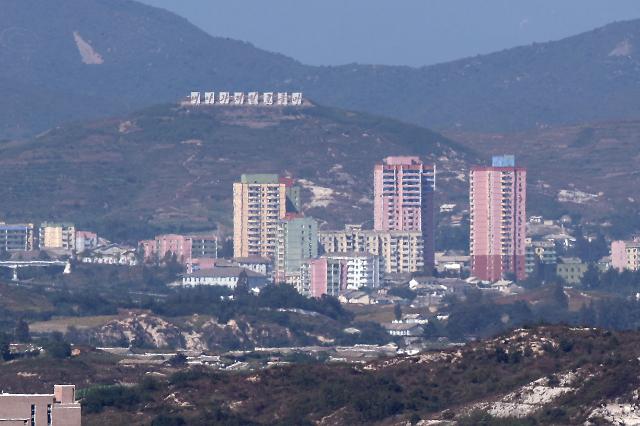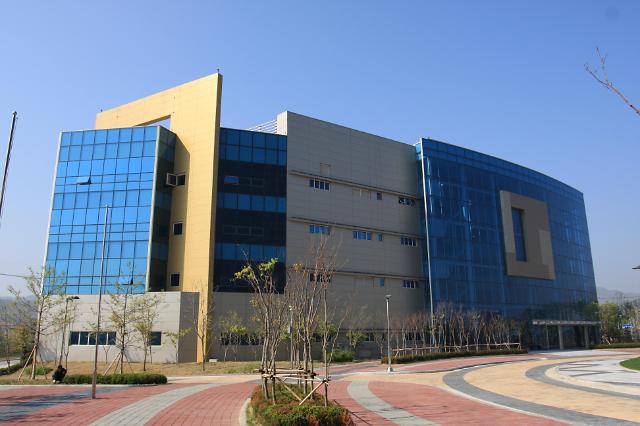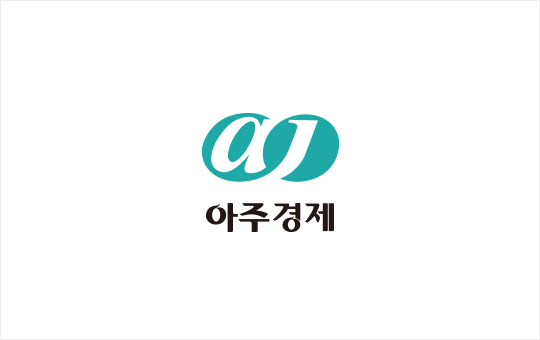
A file picture shows North Korea's border city of Kaesong, which has a closed inter-Korean industrial zone. [Yonhap News Photo]
South Korean firms doing business in North Korea will receive state financial support in compensation for losses caused by the suspension of cross-border trade and exchanges, but government officials cautioned against any political misinterpretation.
The primary beneficiary will be about 120 firms which were kicked out of
an inter-Korean industrial zone in the North's border city of Kaesong when Seoul shut it down in February last year in retaliation for its ballistic missile and nuclear tests.
The South's unification ministry in charge of cross-border affairs said the firms with factories in Kaesong would get a total of 66 billion won (59 million US dollars) in fresh compensation. They have already received 517.3 billion won.
"Measures were taken to fulfill the state responsibility for companies which have suffered from unexpected woes caused by a sudden shift in the government's policy," Vice Minister Chun Hae-sung told reporters.
The Kaesong complex, a symbol of inter-Korean cooperation and reconciliation, was considered a rare legitimate source of hard currency for the impoverished North. It once hosted about 120 South Korean firms with Pyongyang making more than $100 million annually in wages earned by 54,000 workers.
Jailed ex-president Park Geun-hye closed it, accusing Pyongyang of diverting income earned in the zone to leader's luxury life or weapons development. Her successor, Moon Jae-in, promised to reopen the complex if Pyongyang returns to the dialogue table. Pyongyang seized assets in the complex and resumed the operation of apparel factories this year.
Chun said financial support would be extended to hundreds of other firms which were forced to terminate business deals with their North Korean partners outside Kaesong. The amount of compensation would be fixed through a government survey.
However, Chun said such measures had nothing to do with the proposed resumption of economic cooperation with Pyongyang. Moon has pledged tough sanctions against provocations but engagement and dialogue otherwise. There has been no dialogue yet due to high tensions aggravated by Pyongyang's nuclear and missile threats.
Cross-border exchanges and trade were frozen in 2010 when Seoul blamed a North Korean submarine for torpedoing the warship Cheonan.
The biggest loser was Hyundai Asan, which has led a number of inter-Korean projects, including cross-border tours to the North's Mount Kumgang resort that were suspended in 2008 when a tourist was shot dead by a North Korean guard. Seoul turned down Pyongyang's repeated request for the resumption of the tour program unless Pyongyang provides written guarantees on the safety of visitors.



